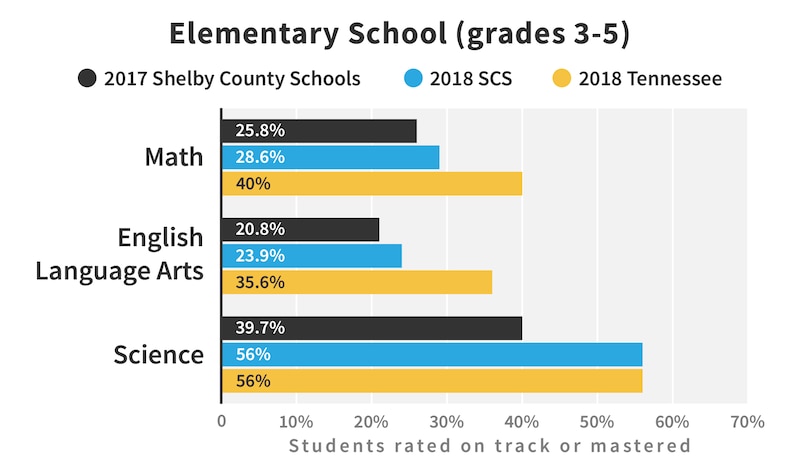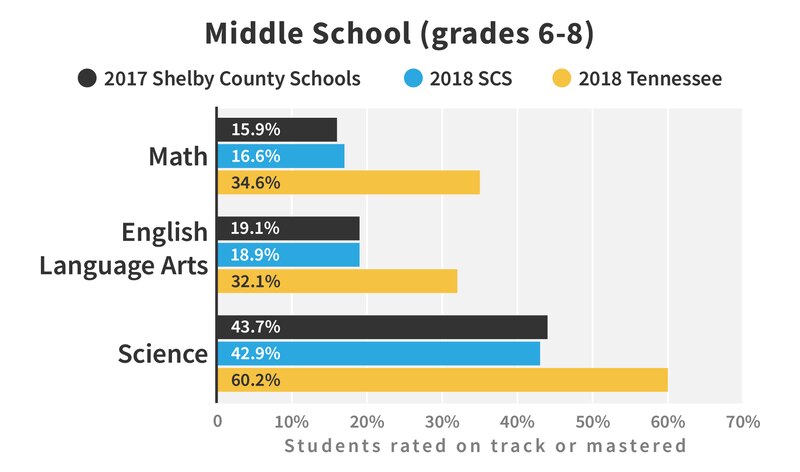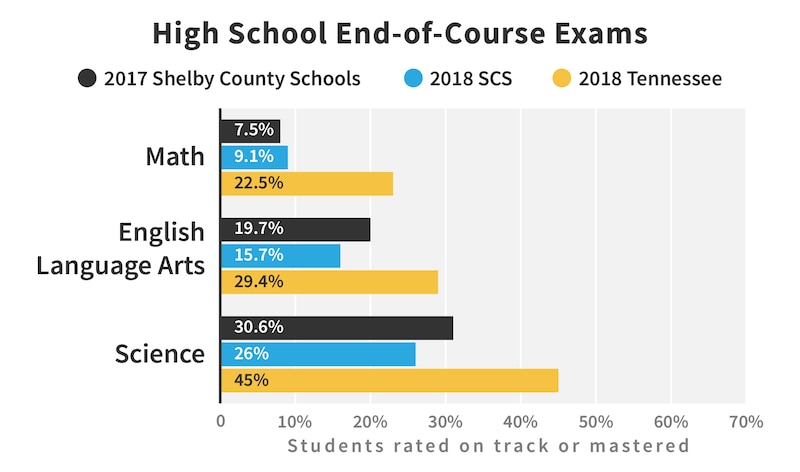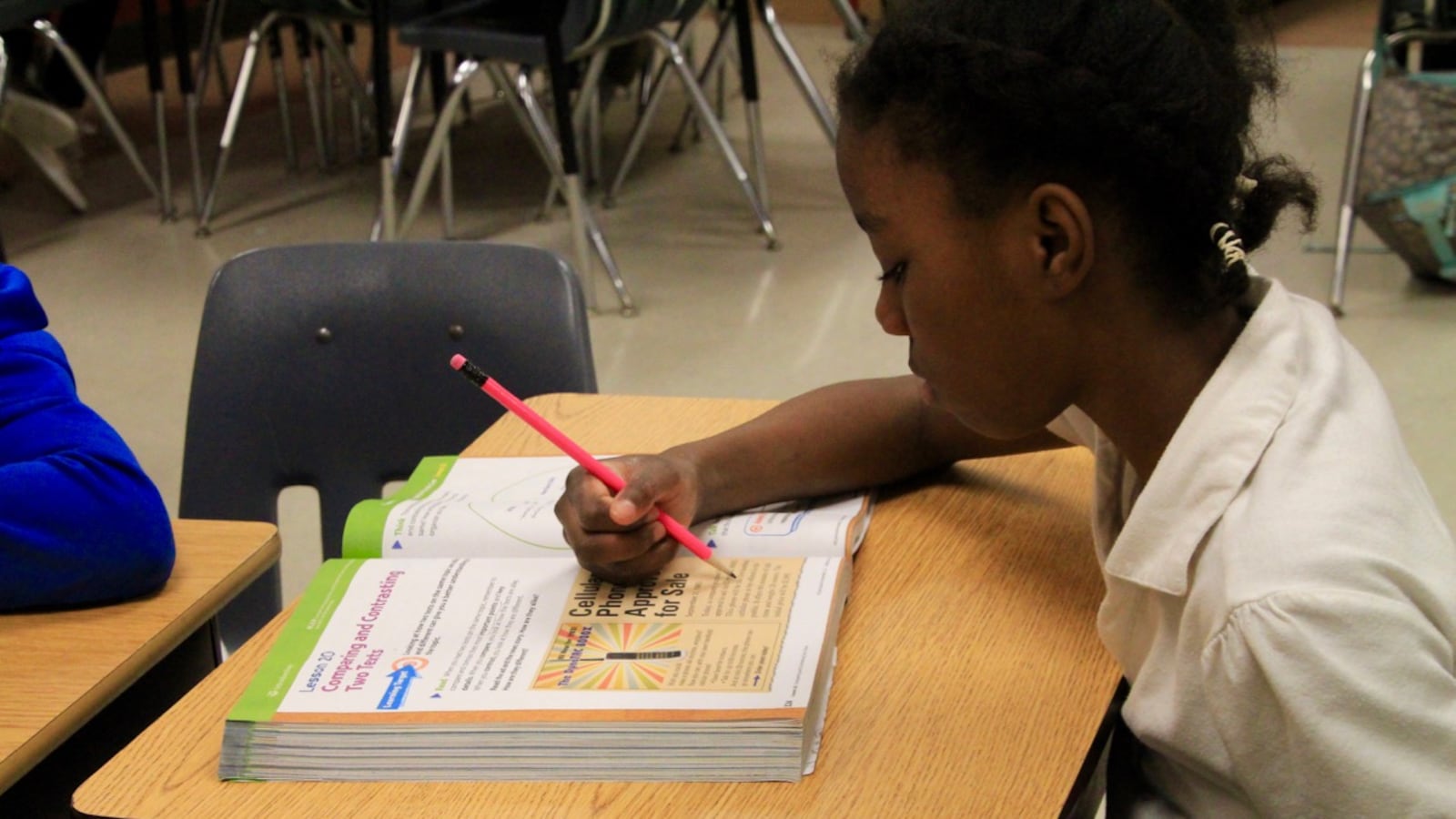Those working to improve early literacy rates in Shelby County Schools got a small morale boost Thursday as newly released scores show the district’s elementary school students improved their reading on 2018 state tests.
The percentage of Memphis elementary-age students considered proficient in reading rose by 3 points to almost one-fourth of the district’s children in grades 3 through 5. That’s still well below the state average, and Superintendent Dorsey Hopson said “we obviously have a long way to go.”

Strengthening early literacy has been a priority for the Memphis district, which views better reading skills as crucial to predicting high school graduation and career success. To that end, Shelby County Schools has expanded access to pre-K programs, adjusted reading curriculum, and made investments in literacy training for teachers.
Hopson said the payoff on this year’s TNReady scores was a jump of almost 5 percentage points in third-grade reading proficiency.
“It was about five years ago when we really, really, really started pushing pre-K, and those pre-K kids are now in the third grade. I think that’s something that’s really positive,” Hopson said of the gains, adding that third-grade reading levels are an important indicator of future school performance.
TNReady scores for Shelby County Schools, which has a high concentration of low-performing schools and students living in poverty, were a mixed bag, as they were statewide.
Math scores went up in elementary, middle, and high schools in Tennessee’s largest district. But science scores went down across the board, and the percentage of high school students who scored proficient in reading dropped by 4 percentage points.
The three charts below illustrate, by subject, the percentages of students who performed on track or better in elementary, middle, and high schools within Shelby County Schools. The blue bars reflect the district’s most recent scores, the black bars show last year’s scores, and the yellow bars depict this year’s statewide averages.



Hopson said he was unsure how much the scores of older students — all of whom tested online — were affected by technical problems that hampered Tennessee’s return this year to computerized testing.
“From what people tell me, kids either didn’t try as hard in some instances or didn’t take it seriously,” Hopson told reporters. “We’ll never know what the real impact is, but we have to accept the data that came from these tests.”
But students in two of the district’s school improvement initiatives — the Innovation Zone and the Empowerment Zone — showed progress. “We’re going to double down on these strategies,” Hopson said of the extra investments and classroom supports.
In the state-run Achievement School District, or ASD, which oversees 30 low-performing schools in Memphis, grades 3 through 8 saw an uptick in scores in both reading and math. But high schoolers scored more than 3 percentage points lower in reading and also took a step back in science.
The ASD takes over schools in the state’s bottom 5 percent and assigns them to charter operators to improve. But in the five years that the ASD has been in Memphis, its scores have been mostly stagnant.
Tennessee Education Commissioner Candice McQueen said she and new ASD Superintendent Sharon Griffin are reviewing the new data to determine next steps.
“We are seeing some encouraging momentum shifts,” McQueen said.
Chalkbeat illustrator Sam Park contributed to this story.

